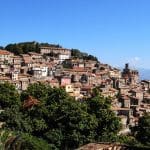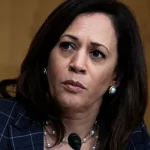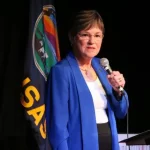Richard Branson is setting off to space – in the hope of becoming the first billionaire to leave the Earth.
He will be launched in a spacecraft carried by Virgin Galactic’s rocket plane, known as the VSS Unity. It will be the first time that the company has conducted a fully crewed flight to the edge of space, though not the first time people have travelled in the spacecraft.
Branson is trying to get there shortly before fellow billionaire Jeff Bezos, the recently retired Amazon chief executive. He hopes to travel to space on board a rocket made by his own private space company, Blue Origin – and unlike Branson, he will be part of the first ever test flight for the rocket.
Branson denies it is a race, despite announcing his plan soon after Bezos and scheduling a date shortly before. Bezos has declined to comment on Branson’s effort to beat him to space.
The Virgin founder – who is part of a team of six – will finally get his chance on Sunday, or some time after it, when the launch window for the test flight opens.
Virgin Galactic has not revealed precise timings for the flight. But its livestream begins on Sunday morning at 2pm uUK time, or 9am eastern time, and so if conditions allow it will likely happen soon after that.
It can be viewed here on Virgin Galactic’s YouTube page, and will be covered live on The Independent.
Previous flights have lasted around 90 minutes, and the latest journey for Unity will probably take roughly as long.
When the flight begins, the spaceplane will be carried by a twin-fuselage carrier jet dubbed VMS Eve (named for Branson’s mother) to an altitude of 50,000 feet, where Unity will be released and soar by rocket power in an almost vertical climb through the outer fringe of Earth’s atmosphere.
At the apex of its flight some 55 miles (89 km) above the New Mexico desert, the crew will experience a few minutes of weightlessness before making a gliding descent back to Earth.
They will then come back and the journey will end where it began – on a runway at Spaceport America near the aptly named town of Truth or Consequences.
Virgin‘s Unity 22 mission marks the 22nd test flight of the spacecraft, and the company’s fourth crewed mission beyond Earth’s atmosphere.
But it will be the first to carry a full complement of space travelers –€“ two pilots and four “mission specialists,” Branson among them.
Although the mission is seen as a potential milestone in helping transform citizen rocket travel into a mainstream commercial venture, spaceflight remains an inherently hazardous endeavor.
An earlier prototype of the Virgin Galactic rocket plane crashed during a test flight over California’s Mojave Desert in 2014, killing one pilot and seriously injuring another.
If successful, Sunday’s flight will also give Branson bragging rights to besting rival Jeff Bezos and his space company, Blue Origin, in what has been popularized as a “billionaire space race.” Bezos, founder of online retail giant Amazon.com, is slated to fly aboard Blue Origin’s suborbital rocketship, the New Shepard, later this month.
Branson’s official job on his flight is to “evaluate the private astronaut experience,” and his observations will be used to “enhance the journey for all future astronaut customers,” according to Virgin‘s press materials.
Virgin Galactic and Blue Origin, along with fellow billionaire entrepreneur Elon Musk’s SpaceX, are competing head-to-head in the emerging business of space tourism, though Musk has a big head start.
SpaceX, which plans to send its first all-civilian crew (without Musk) into orbit in September, has already launched numerous cargo payloads and astronauts to the International Space Station.
Branson, 70, insists there is plenty of demand from wealthy would-be citizen astronauts to go around, and that he had no intention of trying to upstage Bezos.
“It’s honestly not a race,” Branson told Reuters in an interview earlier this week. “If it’s a race, it’s a race to produce wonderful spaceships that can make many more people be able to access space. And I think that’s both of our aims.”
The spaceplane’s two pilots, Dave Mackay and Michael Masucci, will control the ignition and shutoff of the ship’s rocket engine, and activate the vehicle’s “feathered” tail maneuver for re-entry.
The three other mission specialists are Beth Moses, the company’s chief astronaut instructor; Virgin Galactic‘s lead operations engineer Colin Bennett; and Sirisha Bandla, a research operations and government affairs vice president.






